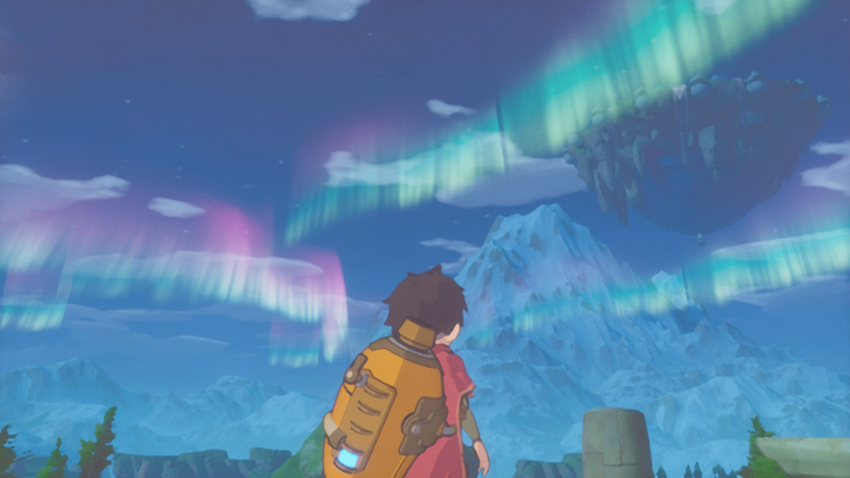Welcome to my Europa review. We were not given a review code for this title.
Europa is a linear exploration game with light puzzle-platforming set on a distant moon and lush terraformed paradise in Jupiter’s shadow. Slide, hover, soar, and glide across the unique, Studio Ghibli-esc ruins of a fallen utopia, piecing together journal entries that uncover the story of the last human alive—and how he came to be so alone.
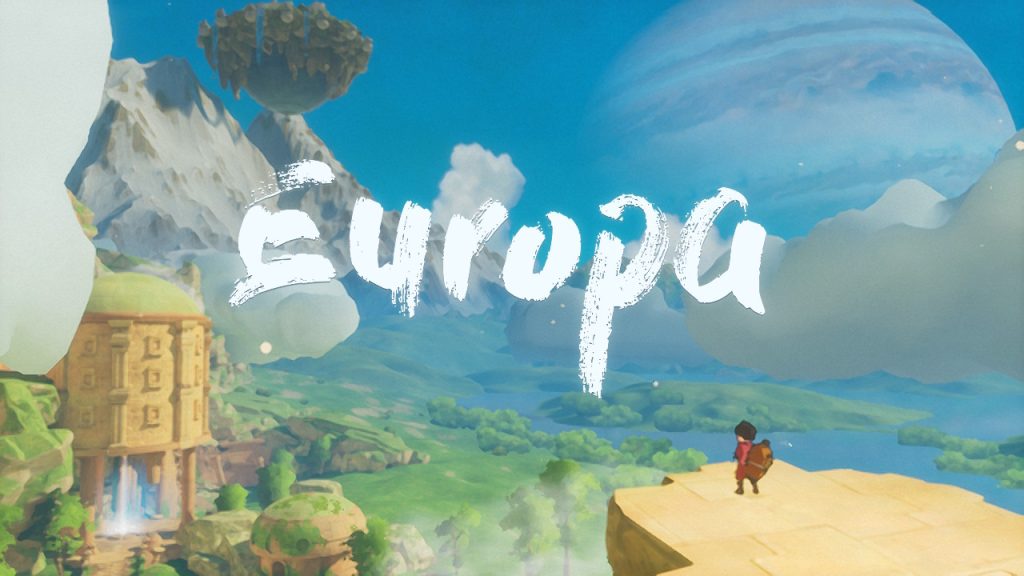
The awe-inspiring setting of 3D-platformer Europa is straight out of Studio Ghibli’s Castle in the Sky, with just a tinge of Legend of Zelda: Breath of the Wild.
Play as Zee, a young android boy, making his way across crumbling architecture—inhabited only by semi-sentient robots called Gardeners—toward a utopic island in the sky, per his father’s last wishes. With futuristic “Zephyr” technology strapped to his back, Zee is able to launch into the air, hover, glide, and propel himself along craggy ruins, rolling hills, and lush valleys.
The landscape of Europa is breathtaking, and cinematic camera controls give you a frequent chance to pause and drink it all in. There is platforming and puzzles and secrets, yes…but much of the time there is joy in just drifting lazily from peak to peak. I found my foremost goal in many areas was just to climb up as high as possible and look around. Once my vantage point was secure, I would start piecing together the simple-but-satisfying arrangements of puzzles and pathways.
Hanging in the sky were my two companions: the vast planet of Jupiter, very nearly silhouetted in eternal blue—and the floating island I was chasing. My destination—and Zee’s calling.
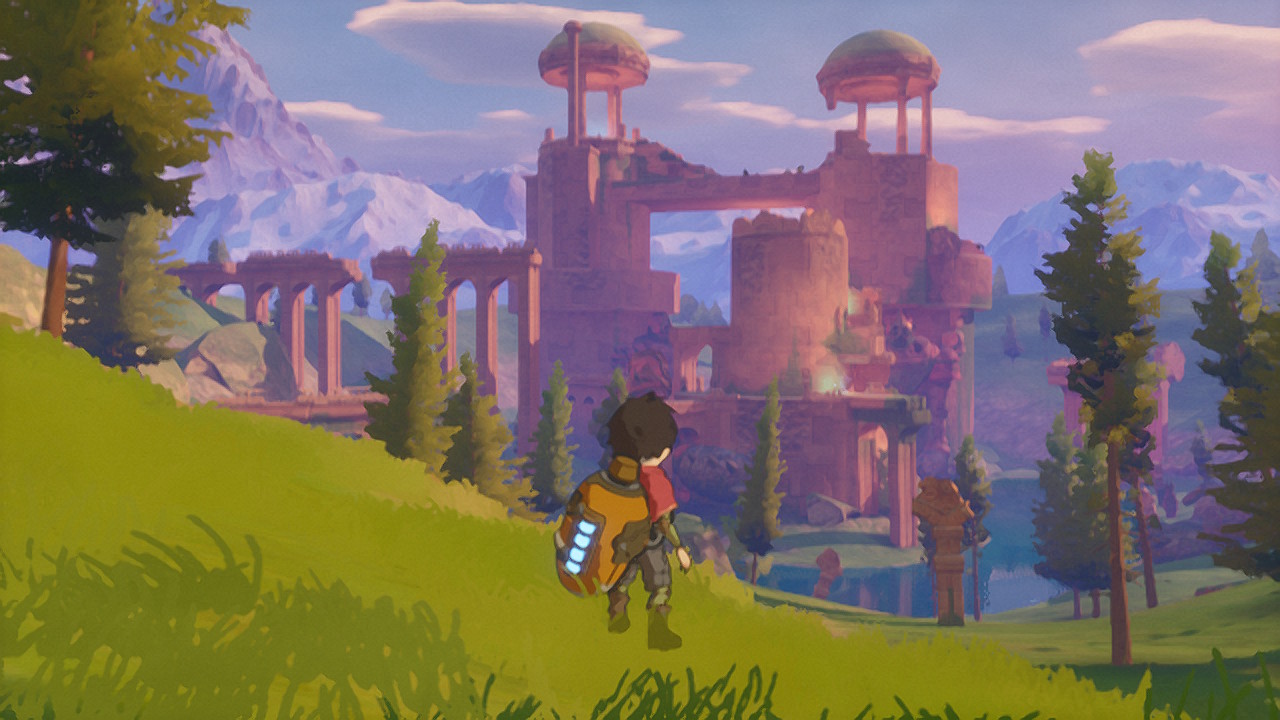
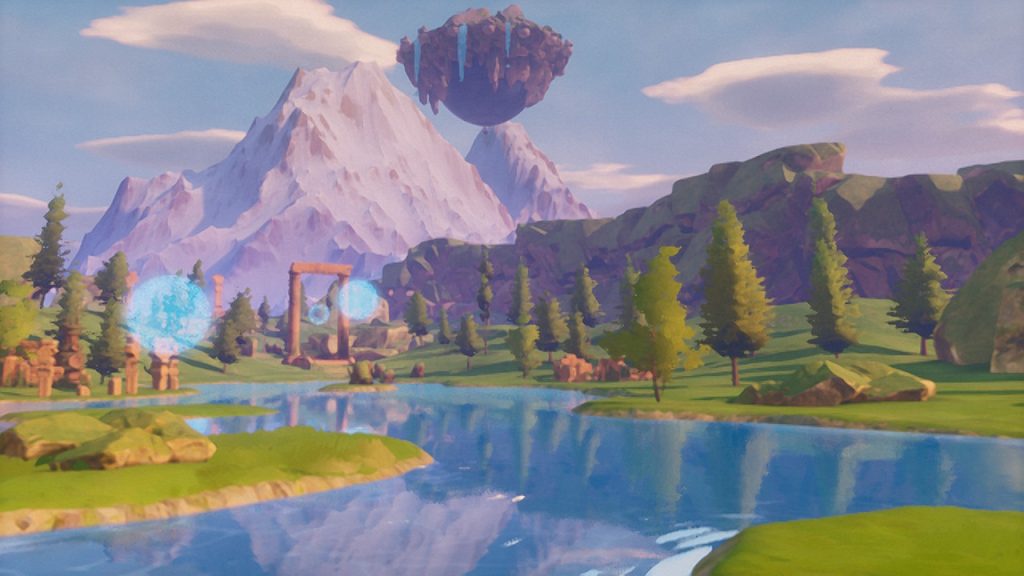
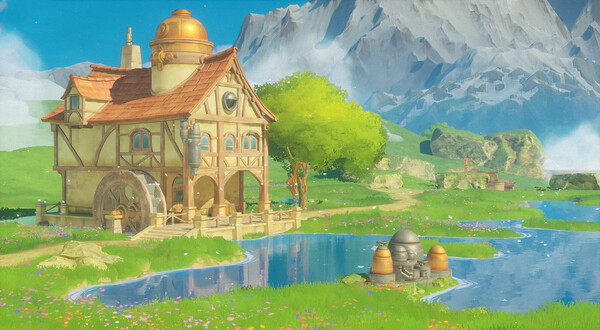
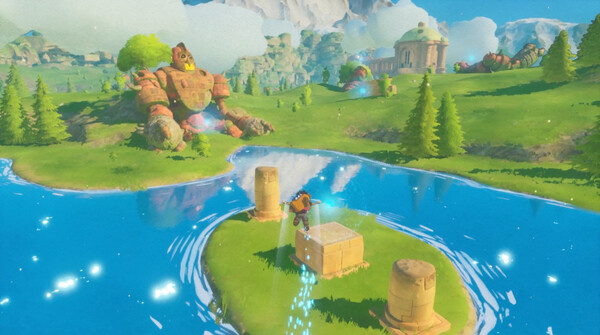
Collectables are scattered around the pastoral setting, tucked into hollow architecture or planted somewhere high, just barely out of sight. You can spend your time collecting energy crystals for your Zephyr machine, which expands your flight capabilities. These are essential to thoroughly investigating the world, as more charge means you can climb higher to reach the tips of pillars and cliffs. However, they are not required to finish the game. They may make it easier, yes, but you can get by with a barebones battery pack. I did so on my first playthrough, simply because I didn’t pick up the controls quickly enough to score some critical reserves early on.
You can also collect emeralds, of which there are 40 in total. There is a special prize for snagging them all, but it’s not essential to do so to finish the game. These are great for the completionist player, as you can flip through the game chapter by chapter once you’ve rolled credits once and clean up any items you’ve missed. You can also collect a series of sketches that Zee draws of the various wildlife he encounters, both biological and mechanical. These were my favorite elements to compile, as it did a great job world building quietly along the way. On one page, you’d see a sketch of a lizard or fish or fawn. On the next, some kind of bipedal robot or mechanical “insect.”
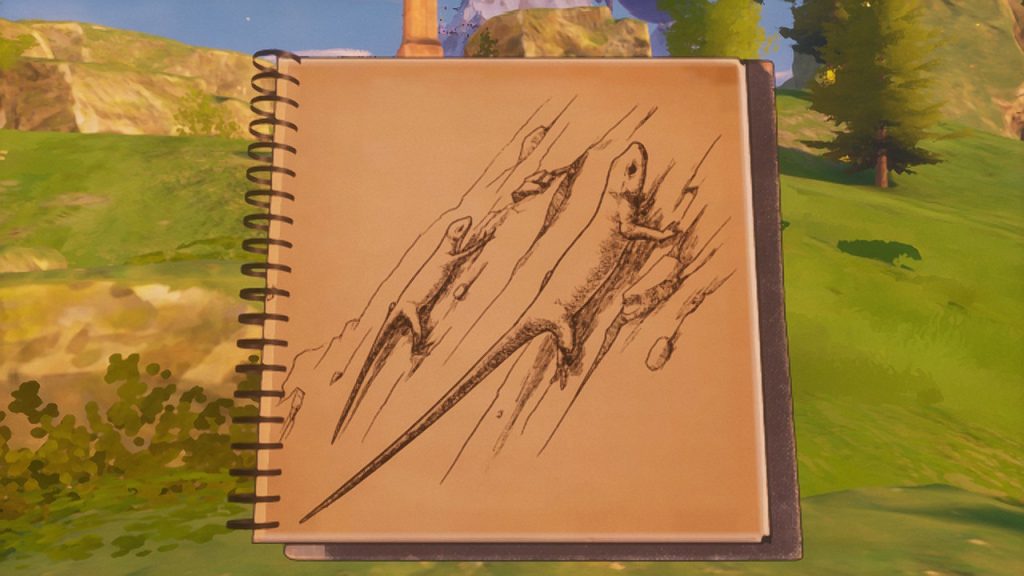
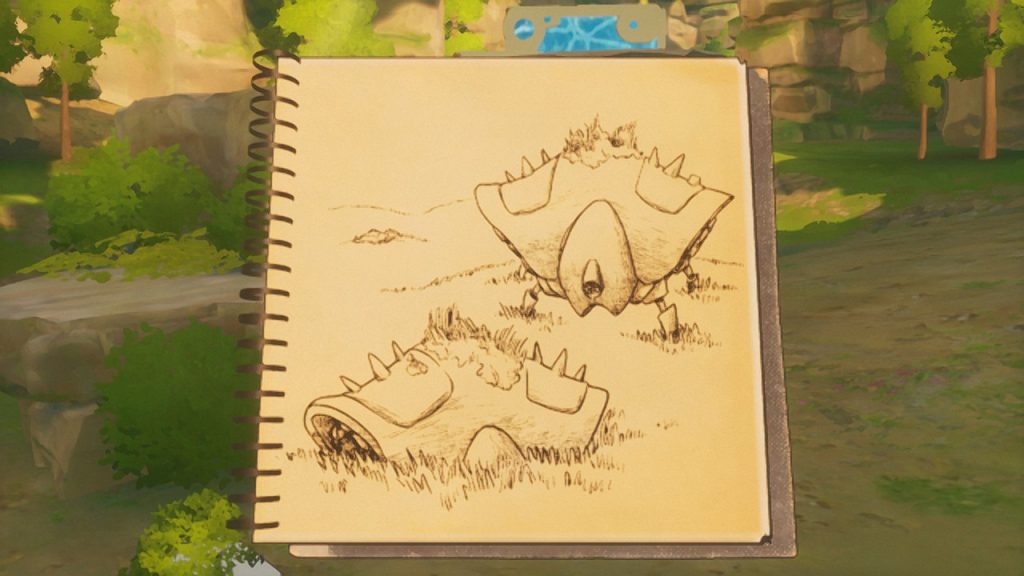
The one collectable that is essential to the story are your father’s journal pages. They are lit up with a pillar of golden light, and therefor very hard to miss. It’s here that you can piece together the narration, voiced by the soothing baritones of Earl Fisher (of the Boarderlands franchise). And let me tell you: If he had a podcast talking about the weather, I’d tune in daily. The story was at times emotional or suspenseful, sometimes devastating. But always loving; always comforting. His rendition of Zee’s father, speaking backward through time, made me feel nostalgic for a place I’d never been.
It’s through these first initial pages of the diary that you learn your ultimate goal: Find a way to the utopic island hanging above you in the sky, always just over the horizon. You won’t immediately know why…or what you’ll find when you get there, but the beauty of it hanging lazily against the clouds was enough to entice me to chase it with all my might. Each chapter, the island would grow closer in the distance. Larger, and more concrete. Players will help Zee travel through green valleys, neon underwater environs, caves and ruins, and even an arctic tundra. All with the intent of making it to the suspended island overhead.

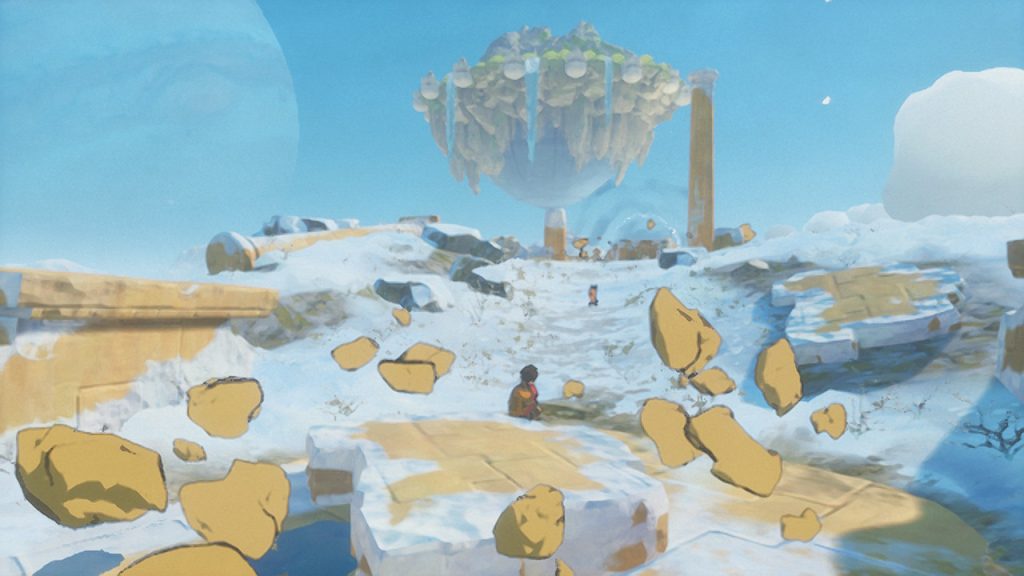
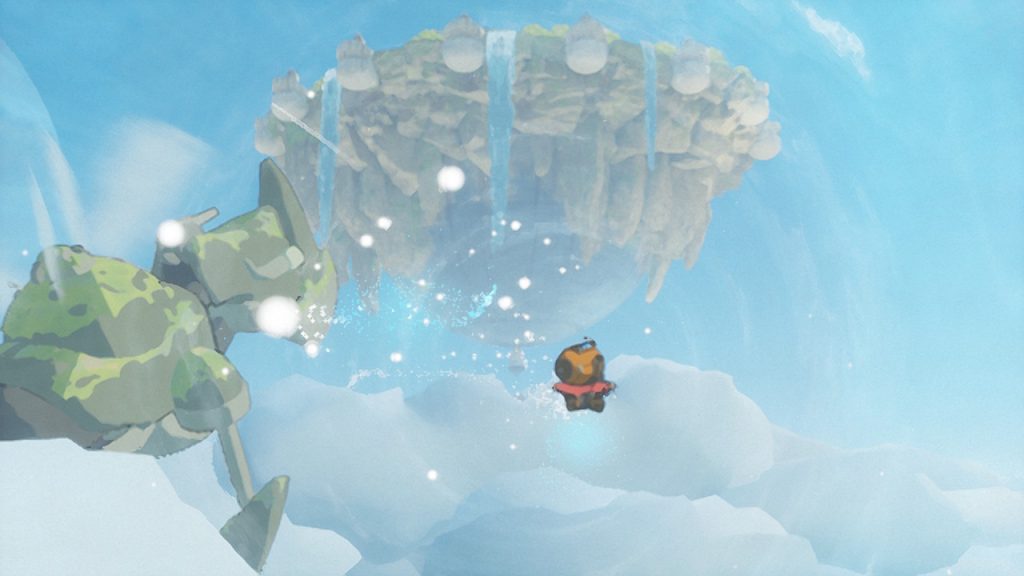
In order to make your way from the cozy cabin Zee was raised in to the skyward plateau, the player will be subjected to a series of easy puzzles, light platforming, and the occasional environmental hazard. However, with no “life bar” to speak of, the worst that can happen to Zee is he gets pushed off-course or temporarily stunned. Once you’ve finished the game, you can turn on “Zen Mode” in each chapter menu that eradicates any hostile forces. This was my ideal way to play the game (I played through it twice fully), as what I really wanted was to explore without being bombarded by wild Gardeners, turrets, and the occasional landmines. However, there is no “death” or real punishment in this game, so the whole experience feels more meditative than it does frustrating or difficult.
Much of the game will be balancing your fly, jump, and glide mechanics to make your way from one side of a mini map to the other. You will also interact with moving and disappearing blocks, puzzle-locked doors, falling debris, environmental hazards (like wind gusts), and various degrees of both militant and peaceful planetary life. Everything is very serene, flows easily, and is oh-so-beautiful.
There is about 3-4 hours of playtime within the game if you rush through it. Taking my time, I clocked closer to 5 hours—and that wasn’t even me going hard after all the collectables. I played it through twice and enjoyed it doubly so the second time around, so players can feel certain that will get their money’s worth here. If I didn’t have 100 other games to write about and review, I’d probably keep playing it and spend some time collecting every emerald to see if that changes the ending at all. (If you know the answer, please fill me in in the comments!)
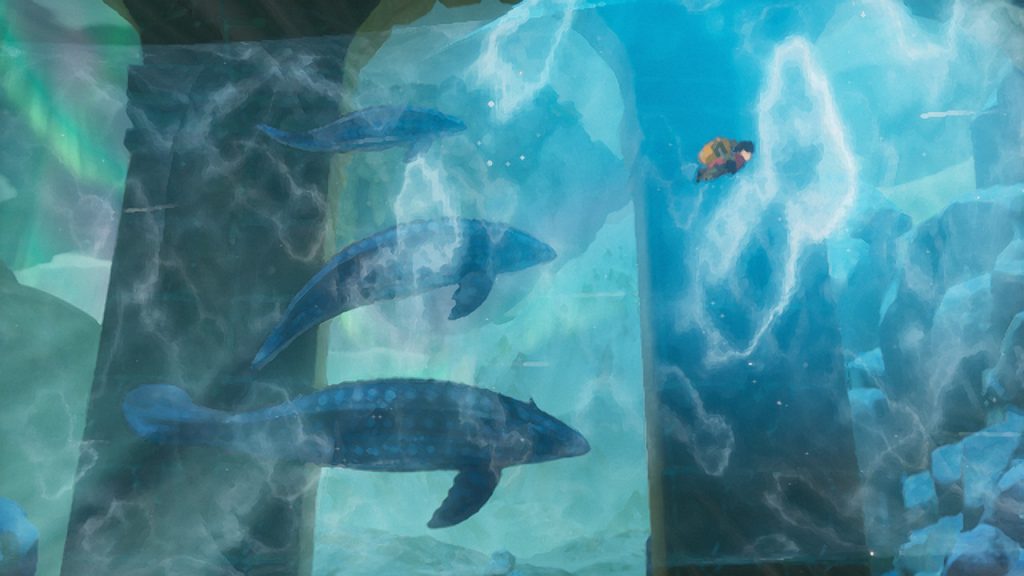
The story of Europa is one you may have heard before: Humans destroy Earth and need to relocate to a new planet…or in this case, moon. Then, their new habitat starts to succumb to the same fate. Greed and carelessness push Europa to a breaking point. Eventually, the planet starts to fight back.
Only, the twist is this: Europa’s protective “army” is manmade. In order to colonize the moon, mankind sent high tech robotic creatures ahead of them to terraform the planet. Called Gardeners, their modus operandi is to protect the planet above all else so that it remains habitable for the human colony. They have evolved to take different shapes of various levels of complexity. Some have even translated their mission to mean: If humans are the disease threatening the planet, they must be rooted out accordingly.
Thus, a war between humankind and machine breaks out. When it gets to be too much—with the humans on the verge of extinction at the hands of the Gardeners—the remaining few re-enter the cryochamber that delivered them to Europa in the first place, hoping to wait out the conflict.
Zee—half human, half machine—may be the sole force who can reunite the two groups. But if given the chance, will he?
Europa is a haunting tale that rings true in a time of manmade climate change and AI proliferation. Part of the appeal of the meandering, meditative gameplay is that it gives you time to reflect on real issues. The beauty of the world isn’t just a pleasant view, it’s a warning: All of this and more can be gone if we aren’t careful. The planet will go on without us. We are but a blip on the radar of its billions-of-years lifespan. It’s our own survival at jeopardy.
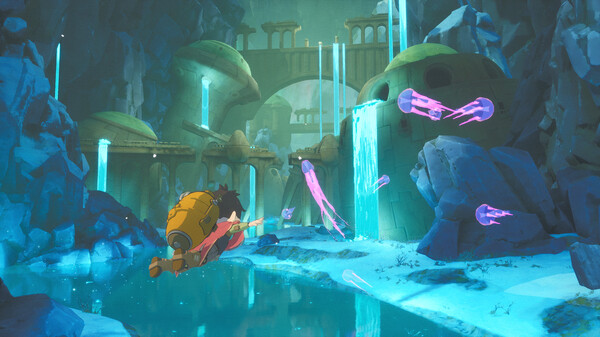
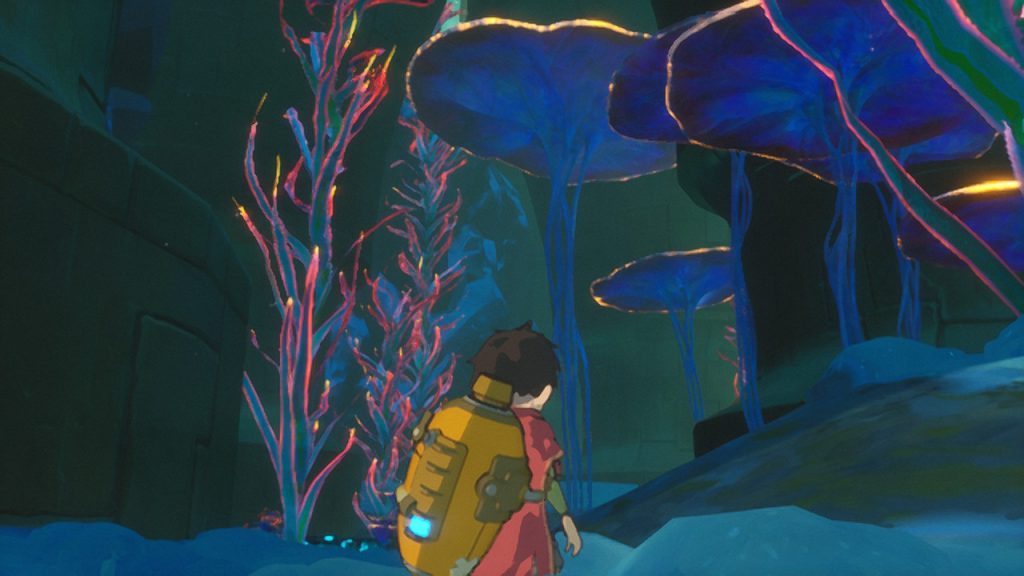
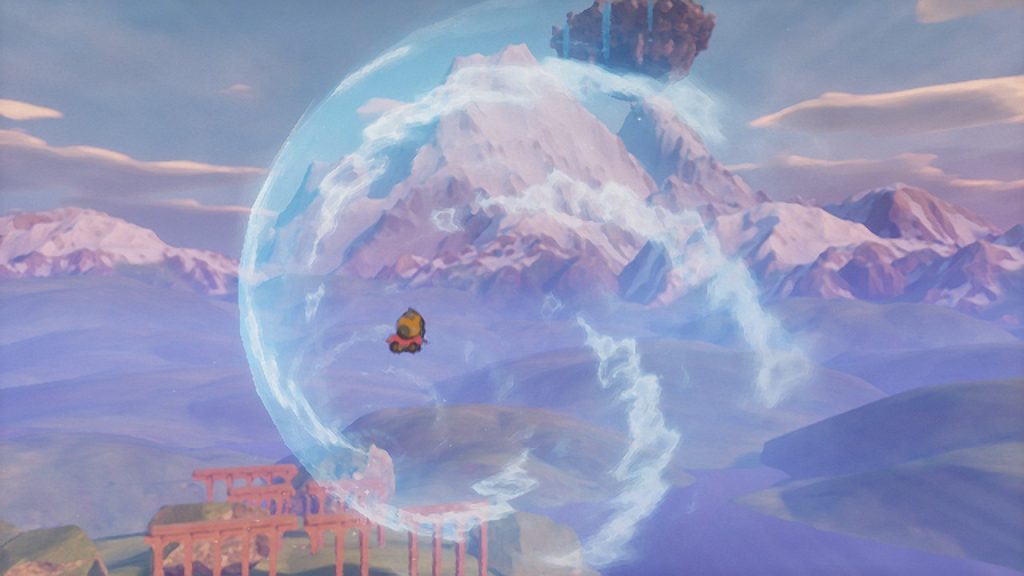
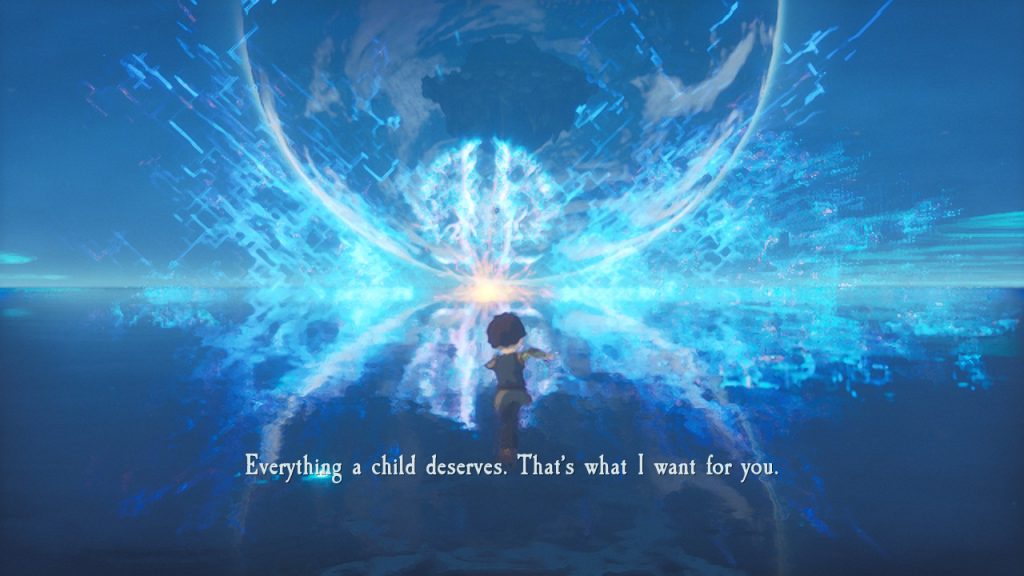
Europa has a bit of a “Breath of the Wild” vibe to it aesthetically, but players coming at it from that angle will be disappointed. The game is not “explore as far as the eye can see” and there are hard limits to every area. Not that I wanted sprawling open-world maps—not at all—but I did feel the limitations bumping up against my nerves every so often. I’d try to climb an interesting cliff or hill and would get pushed off my path with a whiteout wind gust that signaled the end of the map. But some areas restricted to me felt like they should have been within reach. Even if just to climb up high and scout for treasure.
There were definitively segments where the “gust” that kept me on-rails felt like it sprung up a bit prematurely. Like, I walked slightly beside a stairwell instead of up it right away, and got blown away like I’d entered some forbidden realm. Maybe that’s on me and my landscape wanderlust, though. Similarly, sometimes the forced camera panning for the sake of cinematic elegance pulled me away from the map in a way that made it hard to see where I was going next, or to judge distances between objects. But these are small details in the grand scheme of things, and I have overwhelmingly fond memories now thinking back on my time with the game.
Overall, there wasn’t really much to complain about. The game was peaceful, beautiful, fun, and just a pinch challenging when it wanted to be. Interwoven was an evocative tale about mankind vs nature, and mankind vs machine, all couched in an immersive and picturesque world right out of a Hayao Miyazaki film.
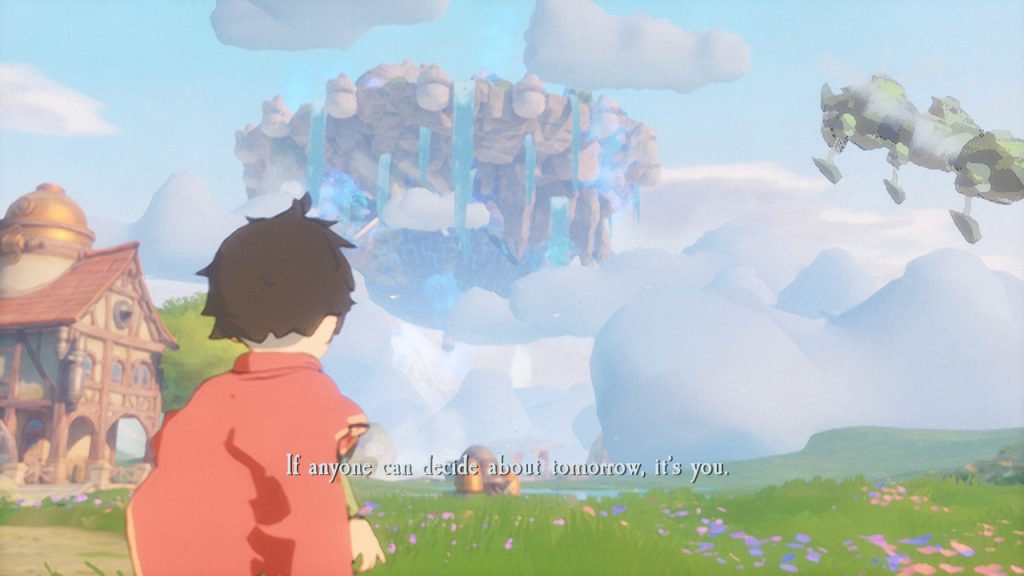
Summary
Here’s a quick summary of the main points of my Europa review, for those who don’t have time to read the whole thing.
Pros
- Breathtaking and cinematic world to explore freely
- Simple-but-satisfying arrangements of puzzles and pathways
- Chapter select and Zen Mode for continuous play
- Heartfelt and compelling narration
- Let me pet the Gardeners!
Cons
- Not for those who want a challenge
- Bumped up against the end of the map too often
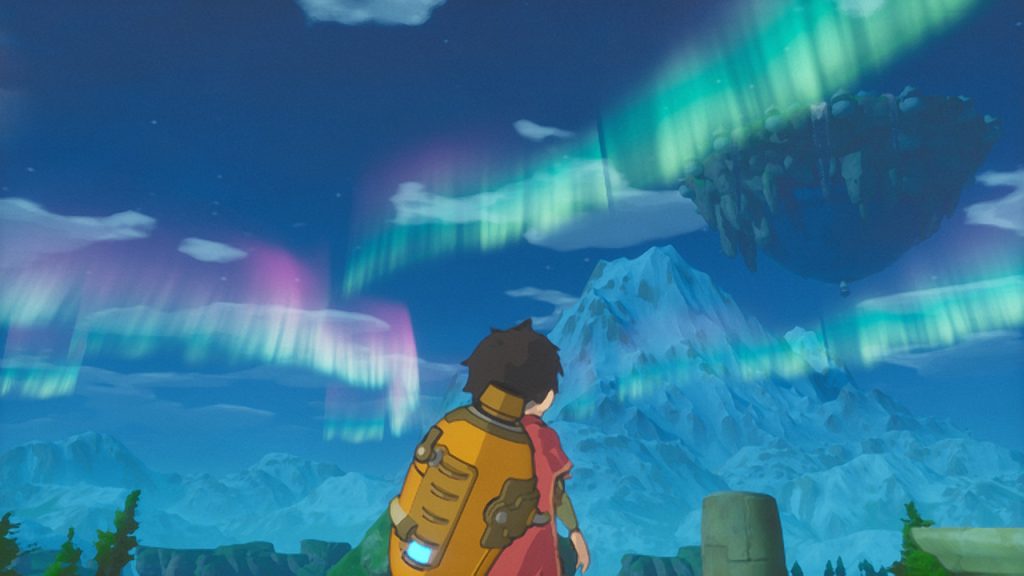
Conclusion
Europa is a lovely and meditative journey through a stunning and fascinating world. Short and sweet, it balances main story content with collectables to give players more than enough to make the game worth the full price paid. If you like puzzle-platformers set in beautiful worlds with evocative environmental storytelling, Europa might be for you. I’d recommend it to people who enjoy games like Journey, Firewatch, ABZU, or Sky: Children of the Light. It’s for anyone who enjoys calming cozy games that focus more on seeing the sights at your own pace than high-octane activity.
I’m glad I bought it day one at full price, but I can understand if some gamers may want to wait for a small sale before giving it a try. Either way, I hope you enjoy your stay on Europa.
Stay cozy, gamers!
